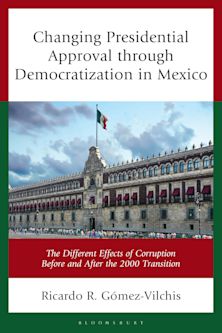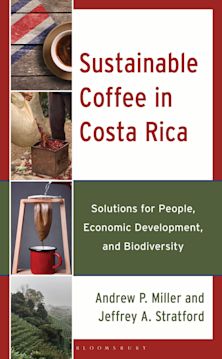Dictatorships in Twenty-First-Century Latin America
Venezuela, Bolivia, Nicaragua, Ecuador, and El Salvador
Dictatorships in Twenty-First-Century Latin America
Venezuela, Bolivia, Nicaragua, Ecuador, and El Salvador
This product is usually dispatched within 2-4 weeks
- Delivery and returns info
-
Flat rate of $10.00 for shipping anywhere in Australia
Description
Written by former President of Ecuador Osvaldo Hurtado, Dictatorships in Twenty-First-Century Latin America explores the most important Latin American political phenomenon to emerge in the first two decades of the twenty-first century: democratic governments elected by citizens have become autocratic governments through the manipulation of the constitutional order and the legislative and judicial functions. Unlike traditional Latin American dictatorships, those of the twenty-first century have not been established by the military but by civilian politicians who were voted into power by the people to govern their countries subject to the provisions of the constitution and the law. Once the leaders assumed the presidency, however, they ignored the constitution under which they were elected and replaced it with one tailored to their political ambitions, using the broad powers assigned to them to remain in power indefinitely. This is what Presidents Hugo Chávez and Nicolás Maduro in Venezuela, Evo Morales in Bolivia, Rafael Correa in Ecuador, Daniel Ortega in Nicaragua, and Nayib Bukele in El Salvador have all done. Hurtado explains the paradox of this new Latin American authoritarian trend occurring when, for the first time in the history of the subcontinent, democratic institutions governed in all countries, with the sole exception of Cuba.
Table of Contents
Acknowledgments
PART I: NEW FORMS OF DICTATORSHIP
Chapter 1: The Concept of Democracy
Chapter 2: From Military Dictatorships to Civilian Dictatorships
Chapter 3: Dictatorships of the Twenty-First Century
Chapter 4: The Governments of Hugo Chávez and Nicolás Maduro
Chapter 5: The Government of Evo Morales
Chapter 6: The Government of Daniel Ortega
Chapter 7: The Government of Nayib Bukele
PART II: THE GOVERNMENT OF RAFAEL CORREA
Chapter 8: The Correa-Tailored Constitution of 2008
Chapter 9: The Process of Concentrating Power
Chapter 10: The Ruse of Citizen Participation
PART III: DEMOCRATIC INSTITUTIONS IN AN AUTOCRATIC REGIME
Chapter 11: The Rule of Law
Chapter 12: The Division of Power
Chapter 13: The Independence of the Justice System
Chapter 14: Freedoms, Guarantees, and Rights
Chapter 15: Government Transparency
Chapter 16: Political Pluralism
Chapter 17: Alternation in Power
Chapter 18: Free Elections
PART IV: PERSPECTIVES ON AUTHORITARIANISM
Chapter
Product details
| Published | 22 Nov 2022 |
|---|---|
| Format | Paperback |
| Edition | 1st |
| Extent | 308 |
| ISBN | 9781538171080 |
| Imprint | Rowman & Littlefield Publishers |
| Dimensions | 227 x 151 mm |
| Publisher | Bloomsbury Publishing |
Reviews

ONLINE RESOURCES
Bloomsbury Collections
This book is available on Bloomsbury Collections where your library has access.


































